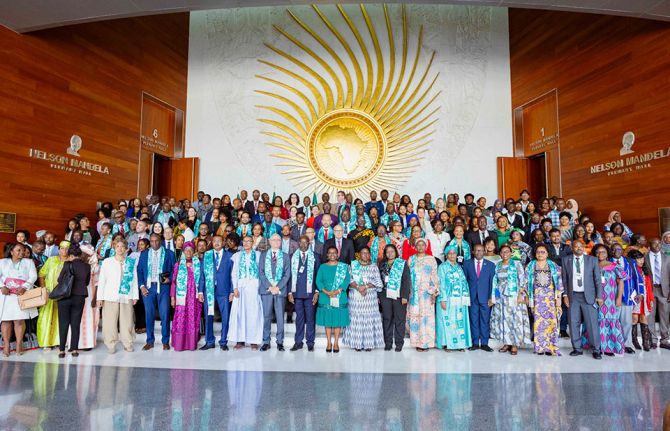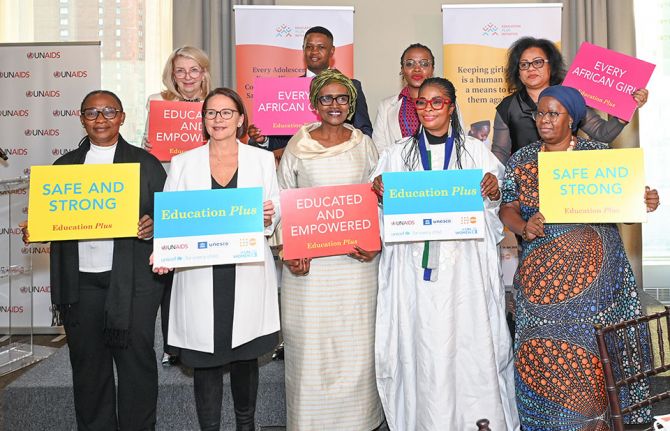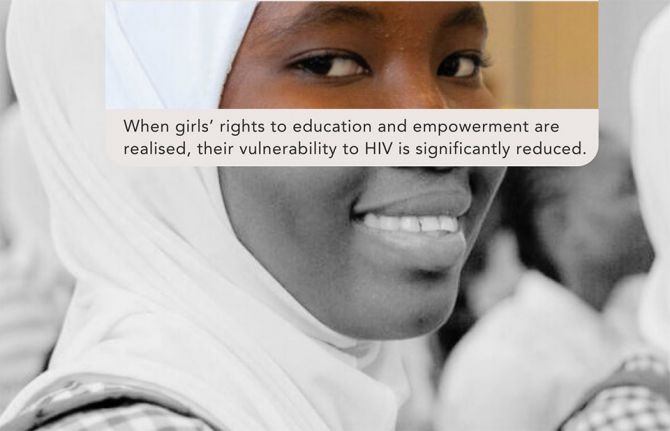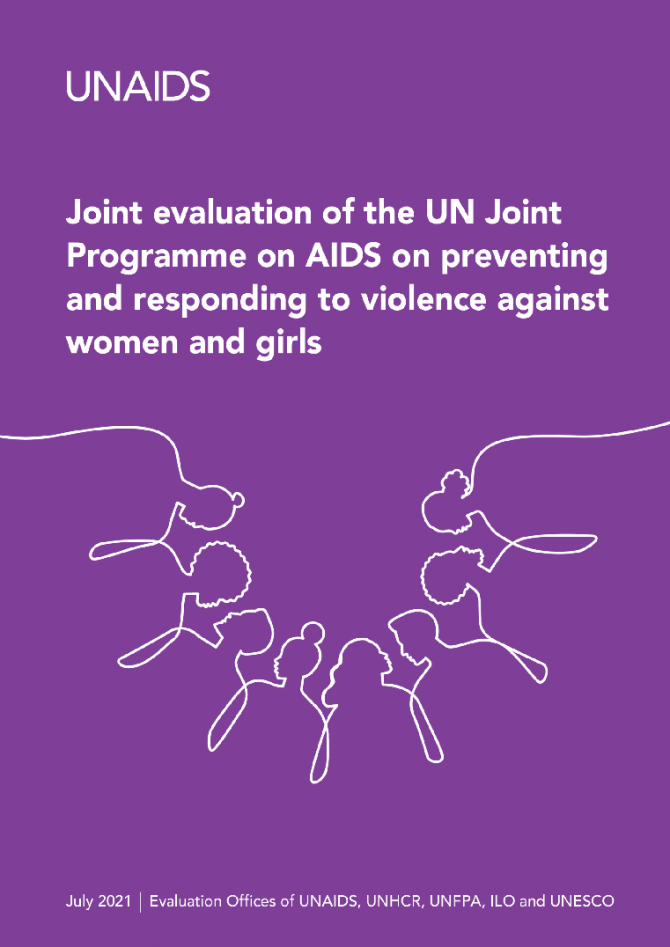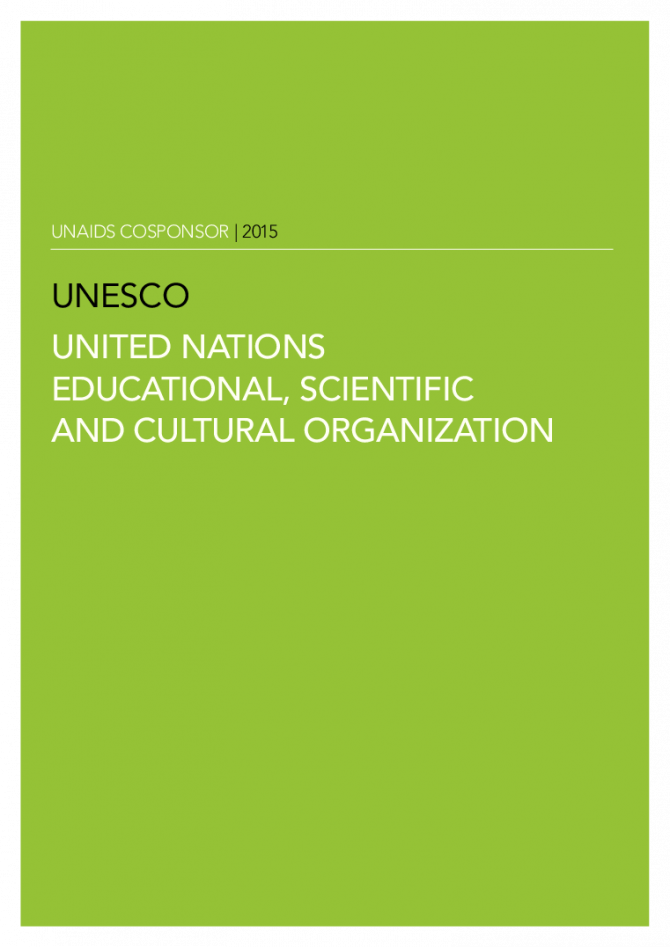
The United Nations Educational, Cultural and Scientific Organization (UNESCO) uses its comparative advantage within the education sector to support Member States to advance young people’s health and well-being. Efforts are guided by the new, revised UNESCO’s Strategy on education for health and well-being, launched in 2022, which places greater emphasis on building stronger, more resilient school health systems that promote learners’ physical and mental health and well-being. It also emphasizes HIV and reproductive health, while maintaining an intensive focus on comprehensive sexuality education (CSE) and on ending violence and discrimination. The strategy aims to build on the intersections of SDGs 3 (Health), 4 (Education) and 5 (Gender Equality).
Education is seen as the cornerstone of an effective response to HIV and contributes to fostering economic growth, reducing poverty and improving general health. UNESCO believes that education can transform lives, and has the capacity to create globally minded citizens able to thrive in their environment, take healthy decisions and build a more just, inclusive, safe and sustainable world. The role of the sector includes providing learners and staff with the knowledge, skills, attitudes and values that can, in the longterm, contribute to safer behaviours and enable them to stay healthy and free from HIV.
UNESCO’s work on the response to AIDS is guided by multiple strategies and results frameworks. HIV and health education have been defined as an expected result of UNESCO’s 2014–2021 Medium-term Strategy. The organization is also guided by the UNAIDS Unified Budget, Results and Accountability Framework 2012–2015, the UNAIDS 2011–2015 Strategy and the 2011 United Nations Political Declaration on HIV and AIDS. UNESCO also has its own strategy for HIV, which defines three key areas of focus: building country capacity for successful and sustainable responses to HIV in the education sector; strengthening comprehensive HIV and sexuality education; and advancing gender equality and protecting human rights.
UNESCO’s policies and programmes on HIV and health are part of its overarching efforts to achieve the Education for All goals, which aim to meet the learning needs of every child, youth and adult by 2015. The organization plays a leading role in EDUCAIDS, the Global Initiative on Education and HIV & AIDS. It also convenes the UNAIDS Inter-Agency Task Team on Education, which encourages a strengthened and coordinated response to the epidemic and forms part of the United Nations’ push to ensure access to HIV prevention, treatment, care and support services for all. The Inter-Agency Task Team includes UNAIDS and its Cosponsors, multilateral and bilateral agencies, private donors, civil society and academics. UNESCO’s work also contributes to Focusing Resources on Effective School Health, a partnership of United Nations agencies, national governments and civil society working to make schools healthy places and to provide learners and staff with the tools needed to lead healthier lives.
The agency promotes good policies and practices in the education sector, helps partners create safe learning environments and encourages life skills based instruction through modern, interactive teaching methods. UNESCO supports responses to HIV that are inclusive, especially of people living with the virus, key populations and young people in school settings. It believes that effective responses to the epidemic should also be gender and age responsive, culturally appropriate, evidence-informed and firmly based on human rights.
In December 2014, UNESCO and its partners marked the first year of implementation of the groundbreaking Eastern and Southern Africa Ministerial Commitment, in which 20 health and education ministers pledged to support sexuality education and sexual and reproductive health services for young people.
Countries have made strong progress towards achieving the ambitious targets set in the Commitment, including:
- Building a coordinated response for implementation by working with national partners across multiple sectors.
- Mobilizing human and financial resources for better capacity and implementation.
- Reviewing, revising and developing national policies, strategies and legal frameworks that address young people’s needs.
Other recent efforts have included providing technical guidance on sexuality education, with a focus on teacher training, as well as supporting responses to school-related gender-based violence. This also covers homophobic bullying and the development of a global report on the status of homophobic and transphobic violence in education.
Additionally, in 2014 UNESCO started working on education sector responses to unintended pregnancy in collaboration with other key partners, organized a worldwide consultation and began developing a global guidance document on the issue. UNESCO continues to work on strengthening the monitoring systems of national school health programmes and on supporting ministries of education to measure education sector responses to HIV.
Additional information is available at unesco.org/aids.



